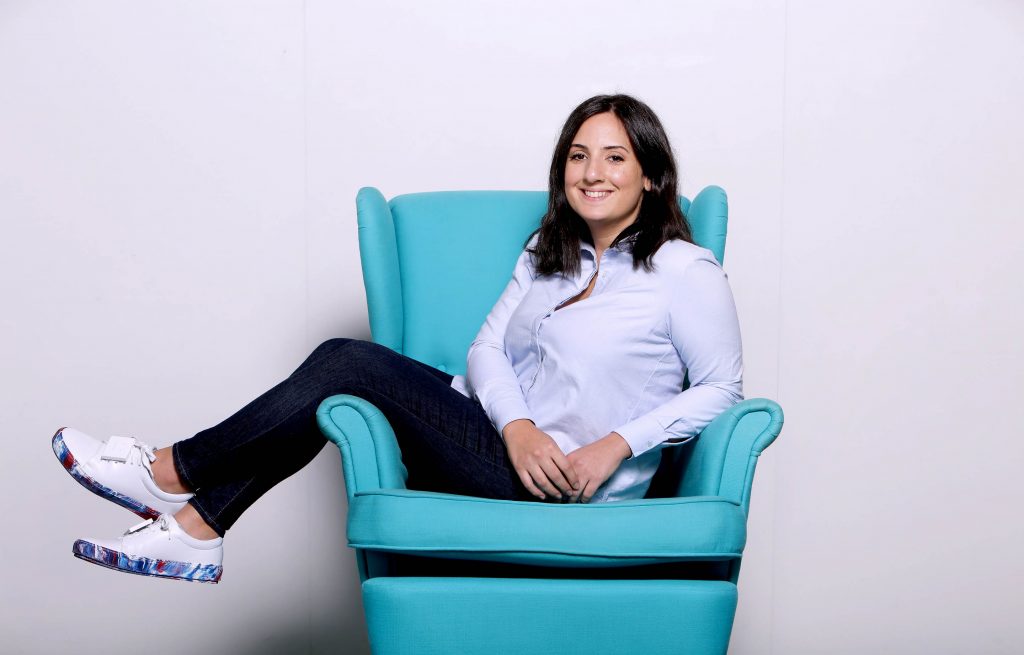
PHD’s Sandra Essa shares her experience with Campaign on how to make a name for yourself in the advertising industry
You’ve just finished university and the world is your oyster. The number one thing on your mind is earning money but, in reality, this couldn’t be further off. The truth is you’re meant to be broke in your twenties. Yes, it sucks but it’s completely necessary: it makes you hungry for a challenge and this will ultimately define who you are and what you’re made of. It’s during this journey of self-discovery that you will suddenly realize, it’s not you who picks your career. The career picks you. My personal experience in the world of media will illustrate this.
I’m a movie buff. I only studied advertising because my parents insisted that film school did not classify as an “education” in their opinion. I did what I was told, graduated and entered the workforce as a bright-eyed marketing executive, full of excitement and optimism, and ready to flex my creative muscles. However, it only took me one month to realize that this wasn’t my thing after all and it was soul crushing. Everything that I thought I loved and knew about myself was flat-out wrong.
That’s when I was referred to PHD, a media agency that I had been dealing with on the client side. After a long and rigorous interview process, I was brought onboard despite knowing little about media planning. That didn’t matter though, because soon after, I suddenly realised that this was where I was always meant to be. I was relieved to find that I still loved marketing, but perhaps more so from the pragmatic side of the business that uses scientific approaches to creativity and innovation, as opposed to artistic ones. More importantly, at PHD, I found myself in an environment that constantly encourages curiosity and gives me the necessary tools and support to achieve everything I conceive.
This journey of twists and turns is inevitable for anyone starting their careers in their twenties and it’s one that we all take on our own. However, one thing is for certain: you will find yourself in the end. So rather than approaching your existential crisis with “what could have been”, perhaps you should take comfort in knowing that fate will take its own course, no matter what. Having been there, and done that, here are five tips that should help you make it through the rollercoaster ride:
- Keep an open mind: Focus on growing your knowledge and skills in your first job, not your wallet. The long-term payout will be even bigger this way. Be open to new projects and challenges as, more often than not, they will actually surprise you about what you enjoy and excel at. If the role that helps you grow also happens to be the highest paying one, then treat your struggling friends to a nice dinner every now and then.
- Self-assessment is key: Be your own life coach and assess what motivates you, what you’re good at and what value you bring to an organization. Align what you’re good at with how it benefits your company. If this isn’t possible, then there is no future for you in that organization. Motivation, on the other hand, is something you can find along the way, be it through monetary incentives, working environment or personal growth.
- Understand how you like to work: Whether it’s hands-on management, corporate versus start-up or physical versus theoretical work, you need to realize what style of working makes you tick. This is rarely taught in a classroom, but it is fundamental to your growth and happiness, and therefore important to discover early on.
- Don’t switch on autopilot mode: If you’ve perfected something, then stop doing it. Either automate it or train someone else, so that you can move onto the next item on your list of things to conquer. Remember, the key is to continue growing in your field by taking on new challenges. Otherwise, you’re no longer relevant and may even be outdated one day.
- Define your purpose: Understand your company’s mission statement, values and culture, and assess whether you actually believe it and want to be a part of it. Make that the criteria for what you choose to do and where you choose to be, in order to enjoy it and feel that you’re working with a purpose.
So, in summary, be open to the fact that what you end up enjoying and excelling at may actually be very different to what you assumed upon graduating. Keep evaluating yourself and your work throughout the journey. Once you’ve had a few years under your belt, you’ll have a better idea of where you want to go in your career. In your twenties, be ready to move diagonally until you have a proper sense of it all; it’s in your thirties that you start moving vertically. In the meantime, enjoy the ride.

